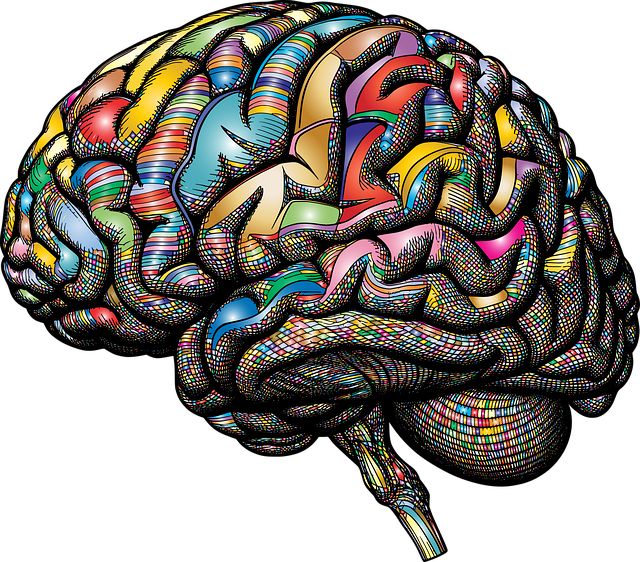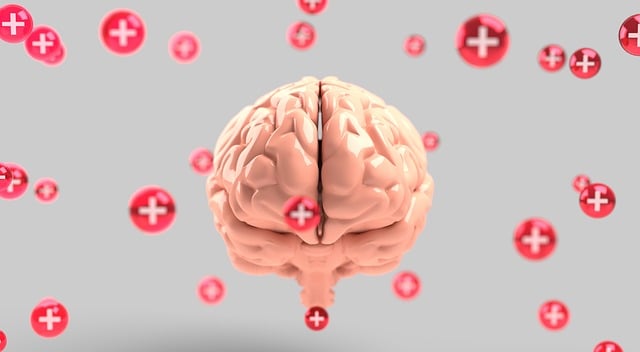Self-care is vital for overall well-being, especially for individuals with gender identity issues in today's stressful world. Littleton Gender Identity Therapy provides specialized guidance, focusing on mindfulness, exercise, and quality sleep to improve mental health and stress management. Through personalized sessions, clients explore self-care needs, gain insights into their gender identity, and learn techniques like meditation and stress workshops. This holistic approach enhances emotional resilience and life satisfaction. The therapy's Community Outreach Program supports emotional intelligence development, helping individuals overcome barriers and prioritize self-care. Regular reflection, goal setting, and tailored adaptive routines ensure long-term mental wellness, with continuous guidance from healthcare providers skilled in emotional intelligence and cultural competency.
In today’s fast-paced world, self-care practices are essential for maintaining mental well-being. This article explores a holistic approach to understanding and enhancing self-care routines, inspired by the principles of Littleton Gender Identity Therapy. We’ll delve into identifying personal needs, implementing daily rituals, overcoming barriers, and measuring long-term success. By embracing these strategies, individuals can navigate life’s challenges with resilience, fostering a profound sense of balance and contentment.
- Understanding Self-Care and its Impact on Mental Well-being
- Identifying Personal Self-Care Needs through Littleton Gender Identity Therapy
- Strategies for Incorporating Daily Self-Care Routines
- Overcoming Barriers to Consistent Self-Care Practices
- Measuring and Maintaining Long-term Self-Care Success
Understanding Self-Care and its Impact on Mental Well-being

Self-care is a fundamental practice that involves attending to one’s physical, mental, and emotional needs. It’s about prioritizing your well-being and fostering a sense of balance in life. In today’s fast-paced world, where stress and pressure can often feel overwhelming, adopting self-care rituals becomes increasingly vital for maintaining good mental health. The impact of consistent self-care is profound; it enhances resilience, enabling individuals to navigate challenges with greater ease. This is particularly relevant for those navigating gender identity issues, as Littleton Gender Identity Therapy emphasizes the importance of tailored support and understanding.
By incorporating activities that nurture the mind, body, and soul, such as mindfulness practices, exercise, and quality sleep, individuals can improve their overall mental well-being. The benefits extend to better stress management, heightened self-awareness, and enhanced emotional regulation skills. Moreover, integrating cultural sensitivity in mental healthcare practice ensures that self-care guidance is accessible and meaningful for diverse populations, offering crisis intervention support when needed.
Identifying Personal Self-Care Needs through Littleton Gender Identity Therapy

Identifying personal self-care needs is a crucial step towards improving overall well-being, and Littleton Gender Identity Therapy offers valuable guidance in this process. This therapeutic approach recognizes that every individual has unique requirements for nurturing their mental and emotional health. Through personalized sessions, clients are encouraged to explore various aspects of their lives, including stress management, social connections, and emotional expression. By understanding one’s gender identity and its interplay with self-care practices, individuals can develop tailored strategies to enhance resilience and foster a positive sense of self.
The therapists at Littleton Gender Identity Therapy employ various techniques, such as Mindfulness Meditation and Stress Management Workshops Organization, to help clients manage anxiety, reduce stress, and improve their overall mood. Additionally, they address underlying issues related to depression prevention, ensuring that individuals have the tools to navigate life’s challenges. This holistic approach allows for a deeper understanding of one’s self-care needs, promoting sustainable changes that contribute to long-term mental and emotional well-being.
Strategies for Incorporating Daily Self-Care Routines

Incorporating daily self-care routines can significantly enhance one’s overall well-being, especially for individuals navigating their gender identity, as supported by Littleton Gender Identity Therapy. Starting small and consistent is key; dedicating just 15-30 minutes each day to practices that nourish your mind, body, and soul can make a profound difference over time. Whether it’s practicing mindfulness through meditation or deep breathing exercises, engaging in light physical activity tailored to your comfort level, or indulging in creative outlets like journaling or painting, these moments of self-attention foster emotional regulation and mood management skills, all vital components of holistic care.
To make these practices stick, consider integrating them into your existing routine. For instance, incorporate a brief meditation session before brushing your teeth each night or dedicate a specific time after work for creative expression. Effective communication strategies with loved ones can also bolster self-care efforts by providing a supportive network that encourages and enables open dialogue about needs and boundaries. By combining these approaches, individuals can cultivate healthier relationships with themselves and others, leading to improved emotional resilience and overall life satisfaction.
Overcoming Barriers to Consistent Self-Care Practices

Many individuals struggle to maintain consistent self-care practices due to various barriers. One significant challenge is balancing self-nurturing with daily responsibilities and demands. At Littleton Gender Identity Therapy, we recognize that creating a routine centered around emotional well-being can be daunting, especially for those navigating complex personal or professional lives. Overcoming these obstacles requires a multifaceted approach.
Our Community Outreach Program Implementation focuses on fostering a supportive environment where individuals can explore and enhance their emotional intelligence. By understanding and managing emotions effectively, one can develop coping strategies to overcome barriers. Self-esteem improvement is another crucial aspect; when individuals value themselves and their needs, they are more likely to prioritize self-care. Through our programs, we empower people to challenge negative thought patterns, build resilience, and cultivate a positive relationship with themselves, ultimately enabling consistent practices that nurture both mental and emotional health.
Measuring and Maintaining Long-term Self-Care Success

Measuring and maintaining long-term self-care success is an essential aspect of holistic well-being, especially for individuals navigating gender identity challenges through Littleton Gender Identity Therapy or similar support systems. While short-term gains are significant, establishing sustainable practices ensures ongoing mental wellness and emotional resilience. This involves regular reflection on personal progress, setting achievable goals, and adapting self-care routines to changing needs.
A key component of this process is developing a strong relationship with your healthcare provider, who can offer valuable guidance and support. Incorporating Emotional Intelligence skills promotes self-awareness, stress management, and effective communication with medical professionals. Regular check-ins with providers trained in cultural competency training can help ensure that self-care strategies are tailored to individual needs, fostering a sense of community and ongoing progress towards optimal mental health.
Self-care is a powerful tool for enhancing mental well-being, as evidenced by practices like those offered through Littleton Gender Identity Therapy. By understanding our unique needs and implementing strategies such as daily routines and overcoming barriers, we can achieve long-term success in maintaining a healthy balance. Remember that consistency is key, and with the right approach, self-care can become an integral part of your life, leading to improved overall well-being.














